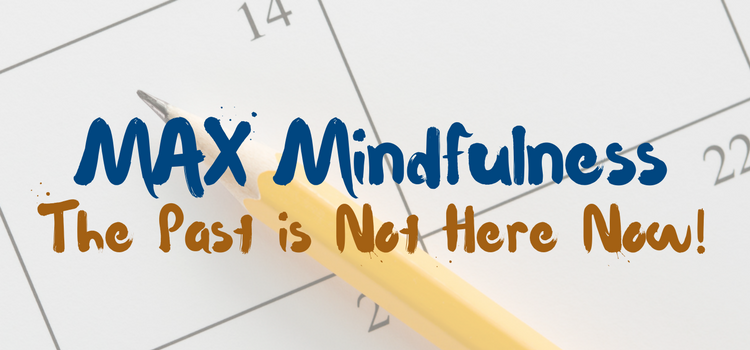by Dave Wine, President & CEO
 One of the great benefits of using mindfulness is to release ourselves of the past. When we live mindlessly, so many of our thoughts, perceptions and reflections are rooted in our past. The past is gone and we only have the present moment. The future is not yet here. Mindfulness helps us stay rooted in our present rather than being sabotaged by our mind’s propensity to find blame and regrets in the past. Watch your mind and just see how often this occurs for you. Some examples that you might consider:
One of the great benefits of using mindfulness is to release ourselves of the past. When we live mindlessly, so many of our thoughts, perceptions and reflections are rooted in our past. The past is gone and we only have the present moment. The future is not yet here. Mindfulness helps us stay rooted in our present rather than being sabotaged by our mind’s propensity to find blame and regrets in the past. Watch your mind and just see how often this occurs for you. Some examples that you might consider:
- Many of our judgments on people we meet now are rooted in past relationships. He/She reminds me of ______. He/She is just like so and so. She/He looks like ______. They remind me of _________. Etc. We seldom meet anyone new without making some type of comparison with someone in our past. It takes mindful effort to center only on this person now!
- A painful incident or event in the past continues to affect our present (and therefore our future). We might have been hurt or rejected at some point in our past. That event, if we are not mindful, can continue to affect us now through our perceptions and mistrust of the present – people and events. Yet the past has no ability to do that unless we allow it to. It is mindfully up to us.
- We perceive a current person or situation as “just like that past _______”. It is doubtful a present person or situation is ‘just like the past’ and our context of putting that past into our present is unfair to any current situation or person.
- We are moving through our day just fine when suddenly we realize we are depressed or disturbed in some way. Why? Looking closely we realize a thought entered our mind from the past that filled us with regret or feelings of inadequacy that is affecting our mood now.
If you pay close attention you will find that most negative mindsets come from thoughts from our past (or fear of the future), seldom is it the present, and even it if occurs in the present, it is often due to thoughts and comparisons to our past. That is why mindfulness is so important and can be so helpful to us in focusing on now – the present. It isn’t easy stuff to let go of the past and it takes focused thought (mindful thought) to stay in the present.
 David Wine
David Wine
David is the President and CEO of the MAX enterprise, having served in that capacity since its formation in 2001. He has forty plus years of leadership experience in the business and faith-based worlds, being an ordained minister, having been elected to the highest position in his denomination, and receiving numerous awards and recognition for his leadership in the insurance industry. He currently serves on numerous boards in the church and insurance sectors. His hobbies include hiking, biking, skiing and snowshoeing as well as being an avid reader. David and his wife, Sharon, have three daughters, a son, and four grandchildren.
 David Wine
David Wine David Wine
David Wine